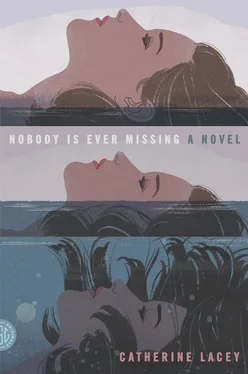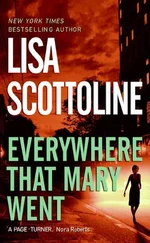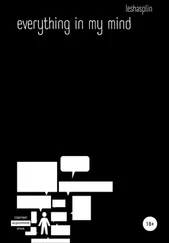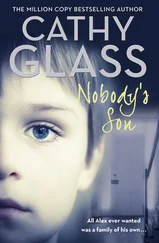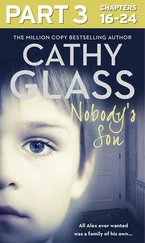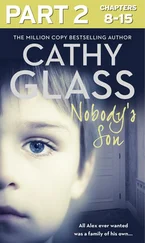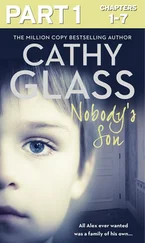* * *
That night, what was supposed to be a romantic dinner became a silent dinner.
I stared, nauseated, at the paella, which seemed putrid, spoiled. I ran the edge of a fork along a gaping mussel shell stabbed in the rice, and I considered picking up a knife for no good reason, but I did not pick up the knife because I knew I would have likely been unable not to stab the ciabatta out of its stupid basket and fling it across the restaurant, so I didn’t pick up the knife because I knew that throwing anything during the middle of a romantic-turned-silent dinner was not appropriate and would create more problems than the satisfaction of stabbing and throwing something would have given.
My husband was staring at me with this brand-new look of his, one I had never seen before but would see much more of in the future; he was looking at me like I was a very nice thing of his that wasn’t working quite like it should, like he’d found a defect, a defect that was extremely disappointing because he had spent a lot of time doing his research and believed he had gotten a thing that was guaranteed against these kinds of defects, and maybe there was some kind of glitch in the system and maybe he needed to have a professional assess the situation, give him an estimate.
I looked at him, extremely silent, and I wanted to say, Husband, I dare you, I dare you to —but I didn’t know what I was daring him to do, just that I was daring him— I dare you, I dare you —and I wondered about how many other sides of him I had not yet seen and that was exciting in a way and terrifying in a way and I didn’t want to feel both excited and terrified right then — I just wanted to feel calm, to feel like a sedated animal on a honeymoon, or to feel like a drunk and beautiful Spanish woman, but I was not drunk or beautiful or Spanish and I wondered if there was a side of my husband who wanted to demolish me, who wanted to turn me into a fine dust, who would bring his solid hands against my throat, who would rend my muscles from the bone without a flinch, in a moment of passion, if he had that kind of passion in him, if that kind of passion was quietly growing in him like an undiscovered tumor. And if so, did I have that tumor, too? Was there some part of me that would rip his arm off his body if I was given the chance and ability? And if I did have that part of me would it be the kind of thing that just healed on its own? Was it a broken-rib thing? The kind of thing you can’t do a damn thing about but try not to cough or laugh for a few months? Maybe I should try to just hold still for a year or so, I thought, and this feeling would mend itself — unless this wasn’t a broken-rib kind of thing but more like an internal-bleeding kind of thing and maybe this bleeding was going to rot us from the inside, hot blood swishing around into corners of us that it should never be. Or maybe it was nothing and I was overreacting and I should just be who I was expected to be — be the senseful and just fine and reliable woman who had fallen in love with my husband and whom my husband had fallen in love with — I could be her, I thought, and I inhaled and exhaled and was pretty sure that it was all just fine.
Is everything okay? Aren’t you hungry?
He looked at me hard in the eye, the way an optometrist would.
On occasion , Werner said as we watched the color drain from the sky on one of those repeated nights, I consider three possibilities for the world. One, the women have it worse. Two, the men have it worse. Or three, everyone has it equally bad.
This was a few weeks into my stay at Werner’s. We had established a safe routine of staying out of each other’s way, though sometimes we’d end up standing in the kitchen at the same time having tea and toast, not speaking. Once he brought in a few clippings of lemon verbena, put them on the kitchen table, and said, It’s lemon verbena , and I just nodded. After I’d done to the garden what I could do to the garden I’d go walk in the woods or hitchhike to town to release the impulse to buy something, to have a coffee or a beer or to consider going but never actually go to the library to send an email to my husband, to let him know I was fine and not to worry, not to bother worrying because there was nothing to worry about anymore and I was fine with my new, tiny life of just a few words and a few people and plants.
And , Werner continued, it is not often that I have a female mind to consult about these possibilities and so, I bring this question to your attention, if you will attend it.
Men have it worse … women have it worse … or no one has it worse?
These are the options we can consider. This is my ridiculous game for us to speak of, here, as we view the ravine.
We should establish categories , I said, and assign points to each category depending on how important that category is to overall life happiness. There should be a winner for each one. We should keep score.
That seems fair.
After debating and assigning points, then tallying them up while the possums scrambled in the darkness around us, we agreed that men had it better.
* * *
Weeks vanished. In the garden I was a thing with a particular use: pumpkin-vine waterer, bean-stalk trimmer, tomato-root coverer. I was suddenly essential. The pumpkins would shrivel without me. The tomatoes would die of thirst. The summer would have sunned them dead.
After dinner I read or did nothing and sometimes in the morning I swam in the muddy bay, backstroking to nowhere and coming back to where I’d started. At night I slept on a thin, knotty mattress and had dreams that were never about operating a dishwasher. And I began to believe that you could exchange your life, send it back for a different model, and I knew that wasn’t really true but I also knew that it wasn’t, here, entirely untrue.
And I did not fold fitted sheets or meet deadlines or go to the grocery store or do our taxes or call 1-800 numbers to complain. I did not wear electrodes or answer questions.
I did not hear my husband opening the front door or closing the front door.
And I did not feel guilt; I did not feel guilty; I forgot all the things that could have caused any warm ounce of that feeling.
* * *
Werner was standing in the kitchen struggling with the lid on a jar of orange marmalade, his face compressing and filling with blood. He looked up and put the jar on the counter, scraped something out of the sink, and tossed it out the window. The population of flies seemed to have tripled overnight and they circulated in the kitchen, more active and audible than usual; when I tried to brush one away, it would stay, indignant, on my skin or fly a tiny circle and return to the same spot.
I picked up the marmalade and opened it with a pop. We stood and ate jagged slices of toast with the marmalade and Werner didn’t say anything about how I had opened the jar, but as I was about to head back down to the garden Werner broke the silence, saying, You are a strange creature. A curd of orange marmalade was on his chin. I focused on the curd of marmalade.
I didn’t want to say anything because I liked how, until now, we never spoke in the morning.
You aren’t doing anything in particular here, are you?
What do you mean?
You don’t appear to have any plans.
I don’t want to have plans , I said.
Werner’s mouth turned slowly to a frown.
But where will you go next?
He took a large bite of toast and stared in a way that made me severely uncomfortable and I tried to hide my severe discomfort and I wanted to tell him that this was my plan, to come here and stay here, because life was simple and I could be useful for a place to stay and not be near my husband and not be near my past and not think about time or plans or deadlines or that rust spot in my old shower that bothered me so much or that wild animal with all the teeth charging toward me called the future, and in the months I’d been here my wildebeest had shut up and I did not want to provoke the wildebeest because it had been so long that it had been silent, but I knew I couldn’t explain that to him, explain to him that a large and useless and angry animal was in me—
Читать дальше
